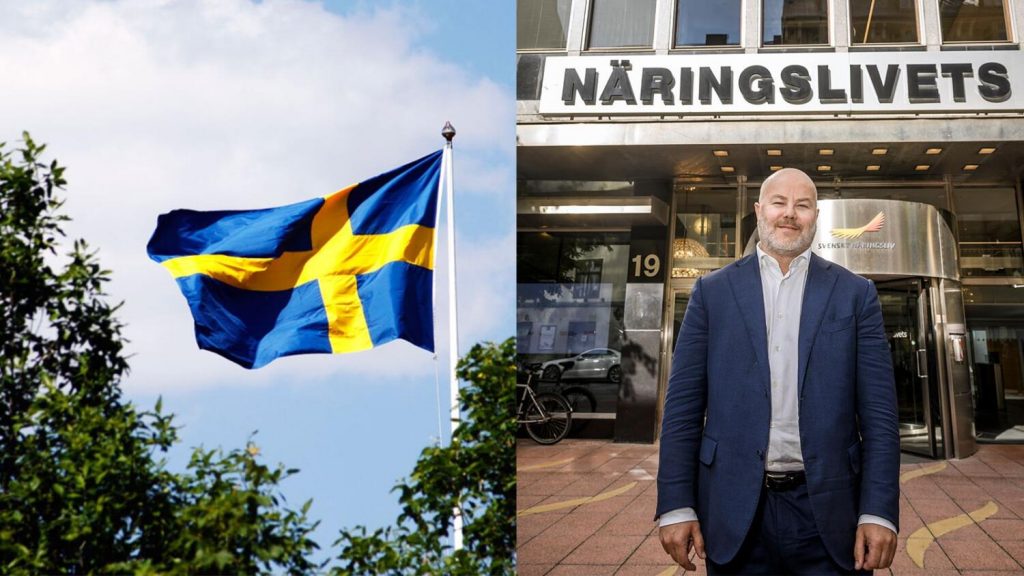Although times are still tough, businesses are more optimistic about the future, a new survey shows. ”It could be an indication that things will soon turn,” says Sven-Olov Daunfeldt, chief economist at Swedish Enterprise.

In the current recession, many companies are fighting for their survival and this can be seen, among other things, in an increased number of bankruptcies, increased notices and rising unemployment. But in Svenskt Näringsliv’s survey, the Business Panel, an increased faith in the future is noticeable.
- When we ask the companies about their expectations about the future, we see that there has been a turnaround and they are much more optimistic about the future now than they have been before, says Sven-Olov Daunfeldt, Chief Economist at Svenskt Näringsliv.
According to the business panel, among other things, the risk of notice has decreased. By the end of 2023, 28 percent of companies stated that there was a risk that they would need to notify staff within the next six months. Now it has dropped to 20 percent.
In addition, the same positive trend can be seen when it comes to labor hoarding, that is, when companies have more staff than they actually need in the short term. 30 percent of companies stated at the end of last year that they had more staff than they needed, now that figure is down to 23 percent.
- If you ask about the companies’ expectations for the future, they are basically at a normal level now. It could be an indication that things will turn around soon.
There are also positive signals on the labor market. For example, when it comes to expectations about the number of employees a year from now, the figure lands at 12 percent when you look at the net total, i.e. the percentage of companies that believe in an increase minus the percentage that believe in a decrease. When the companies assess the need to hire compared to 12 months ago, the figure lands at minus 6 percent.
But at the same time, times are still tough. Apart from the pandemic, investments have not been this low since the financial crisis in 2009, according to measurements from Swedish Enterprise. The net number in terms of how companies’ investments have developed over the past year is negative (minus 5). But expectations around investments are expected to increase in a year’s time, the net figure of 7 percent shows. Sven-Olov Daunfeldt believes that the fight against inflation is over and that companies’ positive faith in the future depends on the Riksbank’s interest rate cut.
- We saw quite quickly that the situation became more optimistic after the Riksbank announced at the beginning of spring that they intended to start with interest rate cuts. The companies see that there may be further interest rate cuts and this instills hope that the economy will turn around.
But even if the companies see a light at the end of the tunnel, it is still uncertain when the economy will turn around, he believes.
- There is a lot of psychology in economics and the companies believe that things will get better and they start to invest more and the economy will also turn around. Our surveys show that companies have become more optimistic and this is usually a sign that the economy is about to turn around.
Although the pandemic, the war in Ukraine and a recession have hit many companies hard, it has not affected their faith in the future negatively, he believes. - Many companies have had an extremely tough time, but I believe that it has not negatively affected the companies’ view of the future. Entrepreneurs are generally positive people who prepare themselves for crises and they try to see opportunities in everything.
However, policy has changed as a result of the crises and there is now a greater focus on temporary measures, he believes.
- We have seen a lot of crisis politics and we have to get rid of that. It is not good, but we have to let the market work by itself. Firms that are not productive must be driven out of the market and replaced by other firms that are more productive and more competitive.
- That’s how we get the economy to work well and that’s how we get growth and productivity.
The absolutely most important thing going forward is to use Sweden’s state finances to invest in, among other things, infrastructure and to create a better functioning labor market so that companies can hire the skills they demand, he believes.
- Now politics needs to create the conditions for us to get a stronger growth force in the Swedish economy so that we can get higher growth and productivity in the Swedish business life.
- The skills crisis is still a huge problem, even though we are now in a recession. Now we have to invest in making the companies grow.
